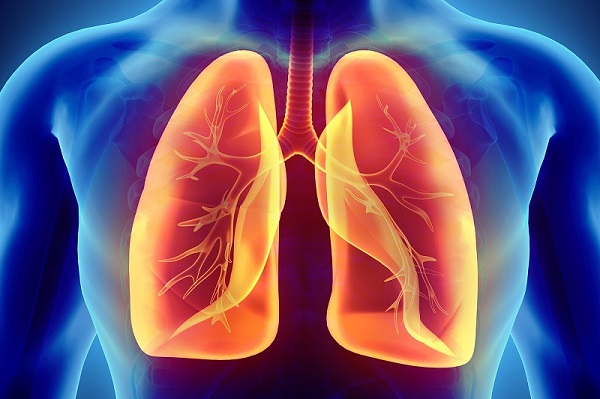1/ Introduction

In the rich and diverse culinary world of Vietnam, green pepper stands out as an indispensable spice. With its unique flavor, green pepper not only enhances the flavor of the dish but also brings many health benefits. This article will delve into the history, growing process, culinary applications and health benefits of green pepper.
2/ Nutritional value in green pepper
Fresh green pepper contains more vitamin C than tomatoes. In addition, they also contain the ingredients piperine, chanvixin, essential oils, starch, and fat, creating the characteristic spicy taste of pepper.
3/ What are the effects of eating green pepper?
3.1 Increase the ability to absorb nutrients
Pepper contains Piperine. This is a substance capable of:
Increases the availability of nutrients such as vitamins A, C, beta-carotene.
Stimulates the movement of amino acids in the intestinal wall, limiting enzymes. Thanks to this, the body metabolizes nutrients better.
Reduces the movement of substances in cells, enhances the activity of the small intestine. From there, the body absorbs nutrients more easily, and the substances entering the body also have more nutritional value.
3.2 Supports gas dispersion in the stomach

If you have bloating or indigestion, use green pepper instead of chili. The dish is both spicy and aromatic, and has the ability to eliminate gas accumulated in the stomach. Just eating these dishes with spices for 1-2 meals will significantly reduce this condition of gas and indigestion.
3.3 Reduce stress
Piperine in pepper can stimulate the body to produce more serotonin. This is a substance that transmits nerve impulses and regulates mood. So when we eat pepper, we will have a more cheerful mood, dispel fatigue and stress. Besides, this substance has the ability to stimulate the brain to secrete endorphins, help reduce pain, bring a feeling of comfort, think positively, be more optimistic and love life.
3.4 Antibacterial

It has the ability to inhibit the growth of pathogenic microorganisms very well, helping prevent infection and reducing the risk of poisoning from insect bites. Adding it to your daily menu can clean your arteries with a similar mechanism to fiber. At the same time, removing excess cholesterol in blood vessel walls helps reduce atherosclerosis – the cause of heart attack and stroke.
In addition, the antibacterial properties of green pepper are also effective in cleaning the respiratory tract and problems related to teeth and gums, and beautifying the skin.
3.5 Improve digestive system function

Digestive problems occur when the stomach cannot secrete hydrochloric acid. Eating spicy pepper will help us handle this condition. From there, digestion is faster and more convenient, helping to eliminate indigestion, constipation, flatulence, and abdominal pain. In addition, green pepper has intestinal antibacterial properties, helping to solve problems caused by bacteria.
3.6 Treat nasal congestion and congestion
With antibacterial properties, pepper can effectively prevent and treat colds. When we have difficulty breathing due to phlegm and congestion in the respiratory tract, just a little dry pepper will help breathe more smoothly.
3.7 Treat arthritis
Piperine has anti-inflammatory properties, so we can apply it to reduce bone and joint pain by mixing pepper powder with a little hot oil and gently massaging around painful joints. This helps blood circulation and reduces pain caused by poor circulation.
3.8 Antioxidant
Pepper contains antioxidants, which help prevent and repair damage caused by free radicals. Here’s how to prevent cancer, cardiovascular disease and liver problems. These antioxidants help neutralize toxic substances and protect the body from many conditions. In particular, it completely reduces symptoms of premature aging such as macular degeneration, wrinkles, age spots, and memory loss.
With the above health benefits and special delicious flavor, green pepper is commonly used in everyday dishes.
4/ Notes when using green pepper

- Do not use green pepper soaked with medicine
Pepper is rich in antioxidants, has anti-inflammatory and analgesic effects. So if used together with drugs with similar effects, it can be counterproductive and even form harmful substances for the body. Therefore, you need to consult your doctor if you want to use green pepper with medicine.
- Don’t eat too much green pepper
Green pepper soaked in fish sauce is good for the digestive system if eaten in moderation. Absorbing too much green pepper can lead to stomach pain or other gastrointestinal reactions. Some people with digestive disorders need to limit eating this spice.
- May cause rash

Using a lot of green pepper can cause dry and peeling skin. Can even cause itching for sensitive skin. Therefore, women who possess these two skin characteristics need to consider when eating pepper.
- May cause lung disease
Large amounts of pepper entering the body through ingestion can get stuck inside the lungs. This accident is especially serious for children, and can lead to death.
In addition to the above issues, you also need to learn carefully about the side effects of green pepper to avoid unwanted consequences.
5/ Side effects of green pepper
- Discomfort during pregnancy
When you are pregnant, your body is always sensitive to food, especially spices. During this period, pregnant women should stay away from pepper because it can cause stomach discomfort in the first months. Heavy use also increases the risk of miscarriage.
- Avoid when breastfeeding
This hot spice can pass through breast milk, changing the taste and causing digestive problems in children.
- Green pepper causes digestive disorders

Using too much green pepper can lead to stomach problems or can also trigger stomach disease.
- Feeling of heat in the stomach
Pepper has a hot, spicy flavor, causing an unpleasant burning sensation in the stomach. Therefore, this spice should only be used in moderation.
- Causes breathing problems
Pepper can cause throat irritation, asthma and other respiratory problems.





